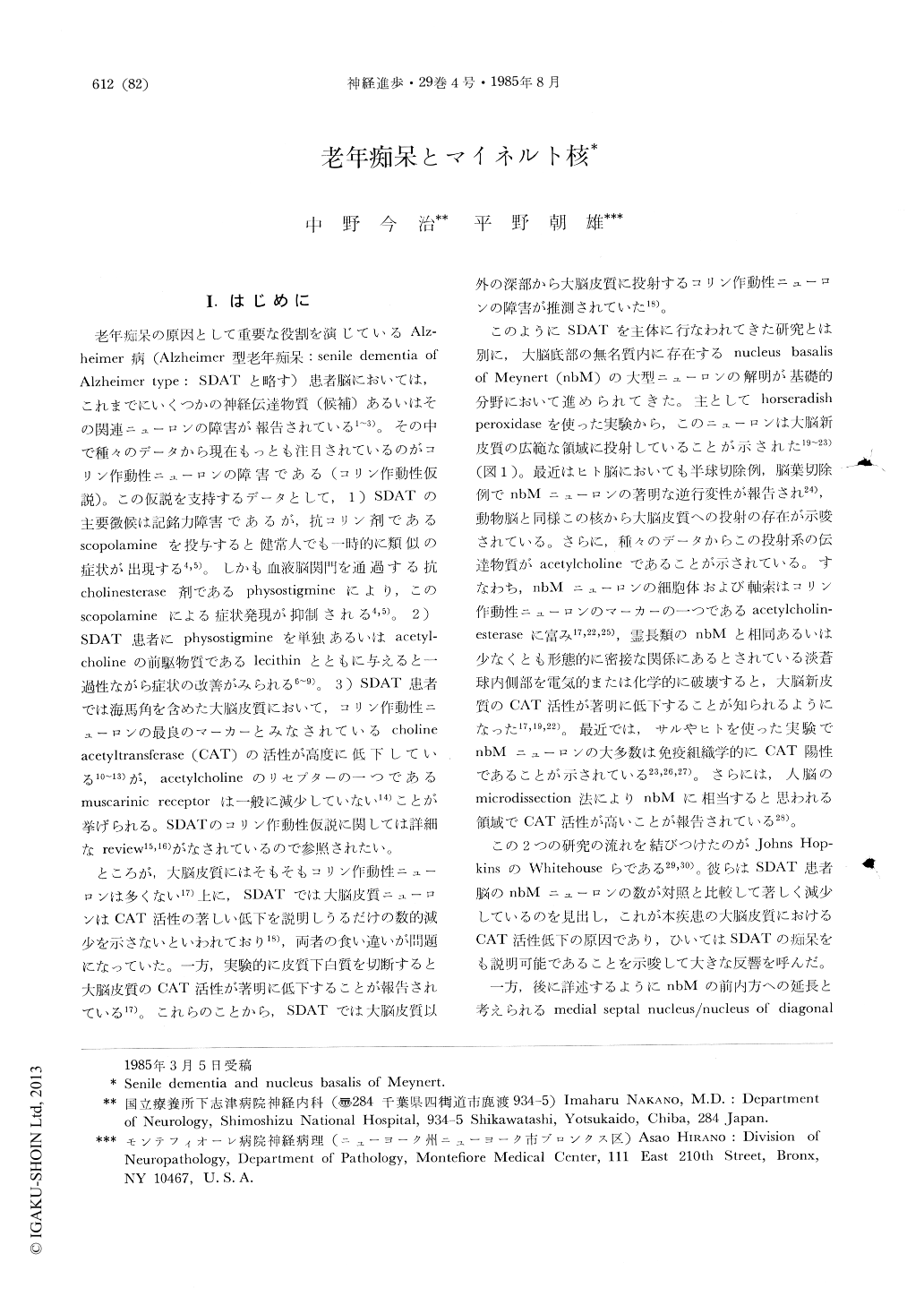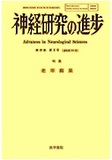Japanese
English
- 有料閲覧
- Abstract 文献概要
- 1ページ目 Look Inside
I.はじめに
老年痴呆の原因として重要な役割を演じているAlzheimer病(Alzheimer型老年痴呆:senile dementia ofAlzheimer type:SDATと略す)患者脳においては,これまでにいくつかの神経伝達物質(候補)あるいはその関連ニューロンの障害が報告されている1〜3)。その中で種々のデータから現在もっとも注目されているのがコリン作動性ニューロンの障害である(コリン作動性仮説)。この仮説を支持するデータとして,1)SDATの主要徴候は記銘力障害であるが,抗コリン剤であるscopolamineを投与すると健常人でも一時的に類似の症状が出現する4,5)。しかも血液脳関門を通過する抗cholinesterase剤であるphysostigmineにより,このscopolamineによる症状発現が抑制される4,5)。2)SDAT患者にphysostigmineを単独あるいはacetylcholineの前駆物質であるlecithinとともに与えると一過性ながら症状の改善がみられる6〜9)。
Recent studies of senile dementia of Alzheimer's type (SDAT) have shown that central cholinergic neurons are probably damaged in this condition: 1) disturbance of recent memory, a major symptom of SDAT, transiently develops in normal young people via scopolamine, an anticholinergic agent, 2) patients with SDAT show some improvement of their psychic conditions by administration of physostigmine alone or physostigmine plus lecithin, 3) activity of choline acetyltransferase (CAT), the best presynaptic marker of cholinergic neurons, is markedly reduced in the cerebral cortex of patients with SDAT.

Copyright © 1985, Igaku-Shoin Ltd. All rights reserved.


